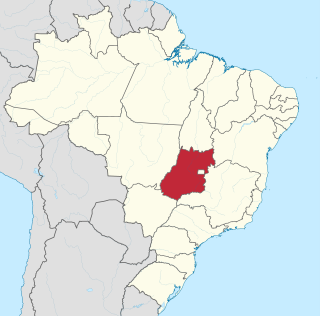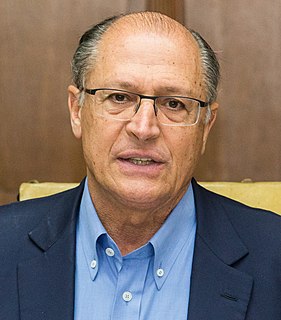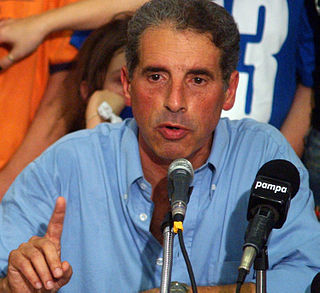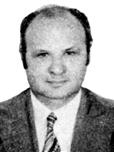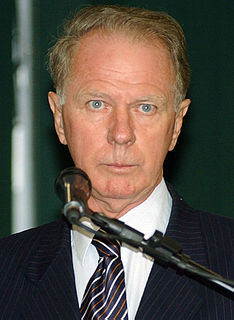| ||
The Brazilian gubernatorial elections, 2010 will be held on Sunday, October 3, as part of the country's general election. In these elections, all 26 Brazilian states and the Federal District governorships will be up for election. If none of the candidates receives more than a half of the valid votes, a run-off will be held on October 24, 2010. According to the Federal Constitution, Governors are elected directly to a four-year term, with a limit of two terms. Eleven governors are prohibited from seeking re-election.

The Federative Republic of Brazil is a union of 27 federated units : 26 states and one federal district. The states are generally based on historical, conventional borders which have developed over time. The Federal District cannot be divided into municipalities, according to the Brazilian Constitution, the Federal District assumes the same constitutional and legal powers, attributions and obligations of the states and municipalities, instead, it is divided by administrative regions.
Contents
Currently, ten of the total seats are held by the Brazilian Democratic Movement Party (PMDB), followed by five held by the Workers' Party (PT) and the Brazilian Social Democracy Party (PSDB) each. The Brazilian Socialist Party (PSB) holds three seats, and the Progressive Party (PP) holds two. The Democratic Labour Party (PDT) and the Republic Party (PR) holds one seat each. Some Governors are not the same from the outcome of the previous election, since some of them had their terms repealed by the Supreme Electoral Court.

The Workers' Party is a democratic socialist political party in Brazil. Launched in 1980, it is one of the largest movements of Latin America. PT governed at the federal level in a coalition government with several other parties from 1 January 2003 to 31 August 2016. After the 2002 parliamentary election, PT became the largest party in the Chamber of Deputies and the largest in the Federal Senate for the first time ever. With the highest approval rating in the history of the country, President Luiz Inácio Lula da Silva is PT's most prominent member. His successor Dilma Rousseff, also a member of PT, took office on 1 January 2011.
The Brazilian Social Democracy Party, also known as the Brazilian Social Democratic Party or the Party of Brazilian Social Democracy, is a centrist political party in Brazil. As the third largest party in the National Congress, the PSDB was the main right-wing opposition party against the left-wing Workers' Party (PT) administrations of Luiz Inácio Lula da Silva and Dilma Rousseff from 2003 to 2016.

The Brazilian Socialist Party is a political party in Brazil. It was founded in 1947, before being abolished by the military regime in 1965 and re-organised in 1985 with the re-democratisation of Brazil. It elected six Governors in 2010, becoming the second largest party in number of state governments, behind only PSDB. In addition to that, it won 34 seats in the Chamber of Deputies and three seats in the Senate, besides having been a member of the For Brazil to Keep on Changing coalition, which elected Dilma Rousseff as President of Brazil.
These elections will coincide with the presidential election, as well as the elections for Legislative Assemblies and both houses of the National Congress. These will be the 8th direct gubernatorial elections, and the sixth since the end of the military dictatorship.

The National Congress of Brazil is the legislative body of Brazil's federal government. Unlike the state Legislative Assemblies and Municipal Chambers, the Congress is bicameral, composed of the Federal Senate and the Chamber of Deputies. The Congress meets annually in Brasília, from 2 February to 27 July and from 1 August to 22 December.



